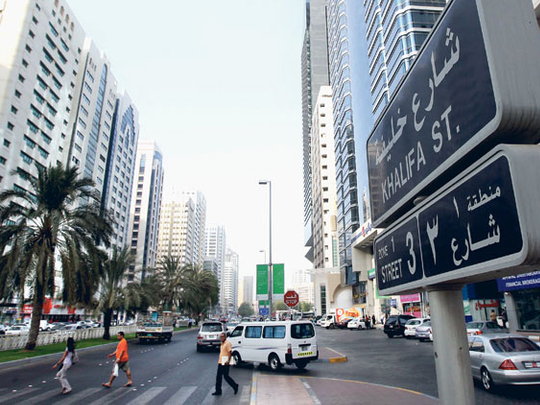
Abu Dhabi: While real estate analysts and economists praise the affordable rental options now available for middle-income residents in the capital city, they are still wondering if the decision will apply to existing development plans — or only to future developments.
As part of the aim to create a sustainable economy in the capital city, the Urban Planning Council issued a new policy on Tuesday, giving middle-income earners the chance to find affordable accommodation.
The price must not exceed 35 per cent of a family's total annual household income.
Master developers in return were asked to co-operate by providing affordable middle-income rental housing options.
Nomura Real Estate Equities Analyst and Vice President Chet Riley said: "It remains unclear whether this ruling is retrospective to existing master development plans and some clarification is required.
"However the idea of affordable housing being built into newly-built developments has been implemented successfully in more mature markers, for example London, where developers can in some instances become responsible for providing up to 50 per cent of social housing in single development blocks," Riley said.
The new ruling would also help address some of the current imbalance in Abu Dhabi residential stock, the analyst said.
"It would almost certainly encourage low income commuters to relocate from Dubai to Abu Dhabi assuming they qualify for support," Riley said.
"Typically social development is done at very low [if any] margins, therefore we would expect average total margins to contract by around 20 per cent on large developments, although this would be partially moderated by the use of different construction materials and modified layouts."
Research clearly indicated there was a shortage of middle-income housing in Abu Dhabi.
Solutions
However, an Aldar Properties spokesman said all developers were aware of the problem and had been considering solutions.
Aldar Properties' Director of Planning and Infrastructure Talal Al Diabi said: "There is now a realisation by all parties that there must be a drive to increase the delivery of middle-income housing across the emirate if the economy is going to grow, and be sustained.
"Discussions with UPC are ongoing, and we are committed to ensuring that appropriate levels of the required accommodation are delivered," he said.
Aldar had started to apply the new policy within some of its current projects, he said.
Examples cited by Al Diabi include the residential element of the Motorworld project, which has been designed to provide middle-income housing for key workers.
Similarly, the delivery of middle-income Emirati accommodation, which is considered a key priority within the Al Falah and Al Bateen Park projects.
HSBC Middle East Chief Economist Simon Williams said while encouraging developers to build a wide range of accommodation was a positive step, trying to micro-manage who paid what rent was unlikely to succeed. "Rent controls are always difficult to implement, and often succeed only in distorting the market," Williams said.
Head of Research and Senior Real Estate Analyst, Mena, Saud Masoud said he felt that while the move was positive news for middle-income families, it may also create increased demand on the main Abu Dhabi islands such as Lulu, Yas and Reem.
"Overall this move may not be a turnaround catalyst as the property sector has to deal with macro issues including financing as well as cumulative oversupply in Dubai and Abu Dhabi combined," Masoud said.
"If household incomes stabilise, then this should allow developers to extract a steady flow of income through direct rentals or at least secure investors that may need access to this income."
Are you aware of the drop? What would consider a fair rental price?











